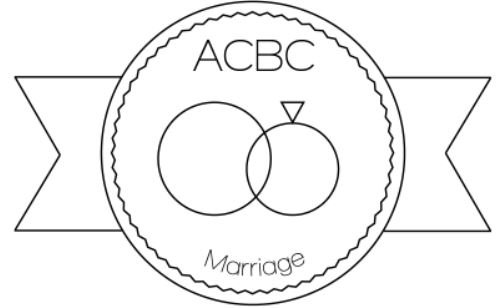Immanuel Biblical Counseling
Blog Layout
Can God Hate Love?
Brian Baker • Mar 25, 2022
Defining love in an upside down world

Can God Hate Love?
That is the mantra of moral superiority levied against Christianity’s stance on homosexuality in our day. Love is never wrong. Sympathetic Christians run the risk of bending or even caving on this point. After all, Ted is one of the nicest people you’ll ever meet. So, when he says his relationship with Jim is hard to let go because it is so wonderful, you see his perspective. You empathize with his struggle to comprehend why it is sinful in God’s eyes. How do we begin to untangle the confusion and help Ted and his wife—and Jim?
The Starting Point
Scripture is plain but not easy…homosexuality is sin. Adultery is sin. Ted must end the relationship ASAP. Romans 1:25-26 plainly states that homosexuality is evidence of a depraved mind and degraded passions. Homosexuality is among a host of sins, including heterosexual sins, that prevent inheriting the kingdom of God. 1 Corinthians 6:9-11 concludes by stating that upon regeneration sinners are changed, freed from these defining sins— “Such were (past tense) some of you; but you were washed, but you were sanctified, but you were justified in the name of the Lord Jesus Christ and in the Spirit of our God.” Each moment Ted waits to end the relationship he willfully rebels against God and re-injures his wife.
The Noetic Effects of Sin Conceals Our Offenses To God
Going beyond the plain declaration that homosexuality is an abomination to God (Leviticus 18:22), we can surmise why it is such a great offense. We turn to Genesis 1 and 2 to understand “Life on Earth 101.” God created the world and everything in it. He created mankind in two equal forms: male and female. Breathing His very life into them, God uniquely stamped humans with His own image and likeness. He gave these equal-but-different sexes complementary roles and responsibilities. Their relationship was not mere animalistic mating, but ideally suited for companionship. Woman was created to be man’s helper. God declared His handiwork to be not just “good” but “very good.” So, when people exchange the natural function of the man and woman for the unnatural, burning in their desires toward the same sex, it is a “slap in the face” to their Maker—as they use their members and give their affections away in a manner different from the way God designed them. If God made you a man, it is an offense to Him for you to behave like a woman—and vice-versa.
The Counselor as Apologist
Men and women are defined as male and female biologically, but the biblical view of the sexes far exceeds. As biblical counselor-apologists, we must not quip, “God made Eve not Steve.” Not only because it is repugnant to the hearer, but because it falls woefully short of the glorious truths at our disposal. We must do better. We should speak of humans and “reproduction” the way God does. God doesn’t say “reproduce;” He says, “Be fruitful.” Perhaps that term seems antiquated, Puritanical. Is it because we think too casually about it ourselves, having lost the grand concept of human flourishing, collectively and personally? I’m afraid we unwittingly give too much ground by adopting secular terms and presuppositions about humanity.
For instance, contrary to the worldview that sees children as a burden and redefines the pre-born according to naturalistic materialism (e.g. “clump of cells” or “embryo”) is the truth that a baby is a blessing and a new life, a new never-dying soul. The “very good” of fruitfulness includes the glory of life in a new imago dei. God is the fountain of life. He created a world teeming with abundant life! —swarming creatures, crawling creatures, beasts of the field, birds of the air, fish in the seas, countless life-sustaining plants, flowers, and trees. The term procreation takes on its fullest sense as we image-bearers reflect God in the life-producing, soul-producing, fruit of holy matrimony.
Sadly, mankind is devilish in its bent to impede and even destroy life. Society seems hostile to life by promoting those things that either ends or prevents life. It is not an overstatement to say that our culture is a culture of death. We have legalized abortion and euthanasia. Life prevention goes beyond “the pill” by our devaluing marriage, promoting homosexuality, redefining family, teaching gender theory, etc. What does this have to do with Ted?
Counselors must show Ted that his behavior and inclinations are of this ilk, antithetical to the God of life. Calling Ted’s bisexual behavior and infidelity an abomination is not hyperbole. His is not the loving relationship he imagines.
What’s the Answer?
Share
Tweet
Share
Mail
Immanuel Biblical Counseling Blog

By Brian Baker
•
25 Jan, 2023
“We just can’t communicate without it ending up in a fight. We argue over disciplining the children. We argue about money. The simplest, innocent questions turn into false accusations! A home is supposed to be a refuge, but ours is just constant chaos! I’m tired and I don’t know what to do. Why do we fight all the time? How can we stop?” God poses this very question to us in the New Testament epistle of James: “Where do wars and fights come from among you?”(James 4:1, NKJV). Other translations put it this way, “What is the source of quarrels and conflicts among you?” (NASB) and “What causes quarrels and what causes fights among you? (ESV). If we can identify the root cause of our problem, then surely, we can resolve it and begin experiencing more peaceful relationships that should characterize Christians. “How good it is when brothers dwell together in unity” (Psalm 33:1). Where our chaos does NOT come from While all three translations above are essentially asking the same “root cause” question, the NKJV’s more literal rendering of the Greek is best, asking “Where” is this coming from? The typical response is that it is coming from someone or something outside of myself. It is my wife, my husband, my children, my bills, my job, etc. Finger-pointing is not new. At man’s original conflict, the Garden of Eden, we see the first husband and wife blame-shifting. Eve blamed Satan. Adam blamed Eve. Even worse than that, Adam blamed God! He told God, “The woman whom YOU gave to be with me, SHE gave me fruit of the tree, and I ate” (Genesis 3:12). God pronounced curses on all three of them. James would agree, in part, that people are to blame. Notice the personal pronoun he uses to describe our fights: “You lust and do not have. You murder and covet and cannot obtain. You fight and war.” (James 4:2). If there was a Texas version of the bible, the subject would be even clearer to us. Because James uses the plural form of “you” and Texans have a distinct plural form— “you all“ contracted to “y’all.” The Texas version would read, “Where do wars and fights come from among y’all?... Y’all lust and do not have. Y’all murder and covet and cannot obtain. Y’all fight and war.” Though this doesn’t tell us what the source of our conflicts are, it does tells us who’s to blame. The problem isn’t with your spouse, child, neighbor, or boss alone. It is with all y’all (That’s advanced Texan-ese). That includes you. Where our chaos does come from God reveals that our chaos does not originate from outside of any of us; rather it comes from inside each of us. “Do they not come from your desires for pleasure that war in your members?” (NKJV). “Is it not this, that your passions are at war within you?” (ESV). The word translated as “pleasures, passions, desires, or lusts” is the Greek word ἡδονῶν (pronounced, Hay-doe-nayn). It is the word from which we get “hedonism.” Did you know that you are a hedonist? It is ironic that what pleases us and makes us feel good is the source of all this chaos. It feels good to “let it all out” to “get it off my chest” or to “speak my mind.” The Apostle Paul uses the term “the flesh,” pointing out that it is in opposition with the Spirit, “For the desires of the flesh are against the Spirit, and the desires of the Spirit are against the flesh, for these are opposed to each other (Galatians 5:17). He continues, “Now the works of the flesh are evident: sexual immorality, impurity, sensuality, idolatry, sorcery, enmity, strife, jealousy, fits of anger, rivalries, dissensions, divisions, envy, drunkenness, orgies, and things like these” (Galatians 5:19). Notice he states that these are the “works” of the flesh; they are the outward demonstrations of the flesh. James uses similar language referring to “our members.” He preceded this teaching with a discourse about our proud hearts venting through that small yet powerful member of our body, “the tongue” (James 3). Our tongues set things ablaze because of our proud hearts’ covetous demand to be gratified at any cost. We don’t get what we want, so we quarrel and we murder (James 4:2). Does that seem over the top? It shouldn’t. Jesus teaches that anger and murder are the same, differing only in degree (Matthew 5:22). Unrestrained anger becomes the act of murder. Quarreling and conflicts are a point along that continuum. We don’t get what we want, so we get angry. Our anger lashes out with the tongue or worse. Perhaps we delay the attack; more like the sniper using stealth and patience, becoming silent, manipulative, playing the “long game” until the opportune moment. Either way, it is a sinful battle of coveting. The next time you sense an argument brewing, stop and ask yourself, “What is it that I want so badly that I am willing to fight over?” Recognize that either verbally, physically, or emotionally you are jeopardizing this relationship. Better yet, ask yourself “What do I want so badly that I am willing to sin against God?” Hope and relief in the gospel Your life does not have to continue in this self-made chaos. Once you see that your quarrels and conflicts are really offenses against God, coming from your own covetous, hedonistic heart which is demanding gratification, then preach the saving and sanctifying gospel afresh to yourself: confess, repent, and look to Christ for forgiveness. Then be reconciled one to another. James says it this way, “But [God] gives a greater grace. Therefore, it says, ‘God is opposed to the proud, but gives grace to the humble.’ Submit therefore to God. Resist the devil and he will flee from you. Draw near to God and He will draw near to you. Cleanse your hands, you sinners; and purify your hearts, you double-minded. Be miserable and mourn and weep; let your laughter be turned into mourning and your joy to gloom. Humble yourselves in the presence of the Lord, and He will exalt you. Do not speak against one another, brethren” (James 4:6-11). Image credit: Image by rawpixel.com
on Freepik

By Brian Baker
•
05 Sep, 2022
Aligning with conservatism to promote a moral society is worthwhile, as far as it goes, but Christianity's concern is righteousness, not morality. What’s the difference and why does it matter? A Biblically Botanical Approach Righteousness is to morality what wheat is to tares, to borrow from a biblical metaphor. My word processor doesn’t even recognize the word “tares.” If you look up “tares” in the International Standard Bible Encyclopedia, it refers you to “weeds.” The weeds Jesus was likely referencing is Lolium temulentum —“a vigorous grass closely resembling wheat or rye.” The parable is found in Matthew 13:36–43 concerning God’s judgment upon the world. God will separate the wheat from the tares. He must separate them for He is the one who can perfectly distinguish between them. The wheat is the real thing, bearing fruit. Tares look the same as wheat on the outside, but are knock-offs, having no grain. We don’t have to guess what the metaphors refer to in the parable. Jesus said it plainly, “The field is the world, and the good seed (wheat) is the sons of the kingdom. The weeds are the sons of the evil one.” Furthermore, he explains that he plants the wheat; the devil plants the tares. Some have argued that Jesus is talking about false believers in the church. I don’t have a problem with that interpretation practically, because in the end it still applies. Undoubtedly the church is mixed with true and false Christians. Each Christian is exhorted to examine himself to see if he is in the faith (2 Corinthians 13:5). Jesus’s comments were directed toward religious leaders who thought they were right with God. However, Jesus said, “the field” is “the world.” After explaining the difference between hypocrites and genuine kingdom citizens, He instructed His hearers to “seek first the Kingdom of God and His righteousness.” HIS righteousness is key. Two Biblical Uses of “Righteousness” The Christian doctrine of righteousness is well established. The Old Testament scriptures present it to us in large part as a grand object lesson using the nation of Israel. God established the Mosaic Law as a tutor, to teach us the holy character of God, the Lawgiver. He gave the nation 633 laws to govern their combined civil and religious life. If a faithful Jew could be characterized as following the law, he was described as “righteous.” That is, he was a law-abiding citizen. For instance, Jesus’s earthly father, Joseph, is described as “just” or “righteous.” The NIV (not a word-for-word translation) accurately captures the concept by translating the word as “faithful to the law.” The Apostle Paul described his former, Pharisee self this way: “as to righteousness under the law, blameless” (Philippians 3:6). In today’s world, where God’s people are under the New Covenant and God’s word has gone out to the whole world, we have a segment of society that may fit that broader definition of “righteous.” They largely believe in, promote, and follow biblical morality. Many would likely count on their morality to be sufficient to get them into Heaven. They would consider themselves righteous. This is how I am using the term “morality.” Morality is the common denominator among political conservatives and liberals of the recent past and Christians. They may even be indistinguishable on the outside. They are good, decent, law-abiding people. We would even say they are people who have “American values.” But the Bible refers to another righteousness, an impeccable type of righteousness. The same Bible that refers to righteous men and women on one hand, also says none are righteous on the other (Romans 3:10 quoting Psalm 14:3 and Psalm 53:3.) This second type of righteousness pertains to utter righteousness, that which is truly blameless in deed, word, thought, and motive. It is perfect, holy, without a moral blemish. For a human to be this kind of righteous, he would be operating within the sphere of God himself—that is, every aspect would be with an eye to God, as it were. All his deeds, words, thoughts, and motives are actively engaged for the glory and purposes of God alone, in every way consistent with the character of God. The Righteousness of Christ Christianity teaches that the Son of God, God incarnate, the God-man, Jesus is the only righteous human. This type of righteousness is the “righteousness of God.” The doctrine goes further to say that in salvation Christ’s righteousness is imputed to us. But how? Do we attain to a certain level of righteousness first, so that God will complete the process and grant perfect righteousness to us? Or are we without hope? Paul says, “This righteousness is given through faith in Jesus Christ to all who believe” (Romans 3:22 NIV). Faith in Christ is the means through which our transgressions of the Law of God are forgiven and the righteousness of Christ is credited to us. But we aren’t transformed into perfection this side of Heaven. It is progressive, but it is actual. This righteousness must characterize the Christian. Hebrews 12:14 says “Strive for peace with everyone, and for the holiness without which no one will see the Lord.” It is an effect, the fruit of the indwelling Spirit of God. Herein lies the distinction between the genuine and the fake. Conservative Morality vs. Righteousness Righteousness is to morality what wheat is to tares. There is no argument that the broader use of biblical morality (which is redundant by the way) is good for our nation. Christians can, and should, join with Catholics, Jews, and other types of moralists to promote a better society. We share values such as fighting abortion, good work ethics, personal responsibility, helping our neighbor, parenting, adopting, serving at food banks, volunteering at animal shelters, restoring neighborhoods, etc. All of which make life better for everyone. But moralism is not true righteousness. In fact, these good deeds—performed outside of the realm of being done unto God with saving faith in Christ alone—God says are “filthy rags.” The concept is far worse than “icky” or dirty. This is the language of being “unclean;” that is, they are unholy, unfit for God’s acceptance. They are not righteous at all. They are unrighteous. Moralism vs. Righteousness Applied I am glad for the conservative push for morality in our culture. I think it is good for us. I also benefit from the insightful perspectives of prominent Catholic, Jewish, and agnostic pundits. Nevertheless Christian, do not be deceived. God’s purposes are not to make us or our nation moral. Stay on task and seek first the Kingdom of God and His righteousness. What does this have to do with biblical counseling? It is very easy to slip into moralism within our own Christian homes and churches. We can learn to conduct ourselves well and teach our children to be moral. We can attend orderly churches that teach us how to be better husbands, wives, and workers. We think, “What a great world it would be if America turned into Mayberry.” The problem is, we would in the end be found out to be tares and not wheat. Biblical Counseling addresses our problems with a goal of Spirit-wrought righteousness, not pragmatic moralism. Are you seeking the Kingdom of God and His righteousness or are you merely living a moral life?
QUICK LINKS
SERVICES
CONTACT
brianb.IBC@gmail.com
433 Plaza Real
Suite 275
Boca Raton, FL 33432

